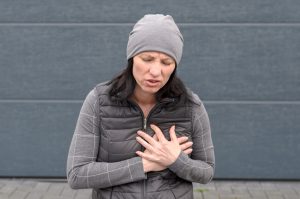 Many people experience chronic mental health problems such as anxiety and depression. These issues can be caused by a wide variety of factors, some of which can be directly changed or coped with in a healthy way.
Many people experience chronic mental health problems such as anxiety and depression. These issues can be caused by a wide variety of factors, some of which can be directly changed or coped with in a healthy way.
As the new year begins, you can use this time to start identifying mental health issues you experience, some of the potential causes of those issues, and how you can work to improve them. Some specific steps you can take to start making positive changes for your mental health include:
Improving your physical health: Your physical and mental well-being are deeply intertwined and have a strong impact on one another. Improving your diet, developing a regular exercise routine, and getting enough sleep each night can lead to major improvements in your mood, outlook, and ability to think clearly, allowing you to cope more effectively with mental health challenges.
Recognizing positive things in your life: If your mind often drifts toward negative thoughts and emotions, it’s important to recognize and be thankful for aspects of your life that are positive. This can be anything from having a strong social support system of friends and family, simply having a roof to sleep under each night, or being in good physical health.
Developing effective coping mechanisms: Coping mechanisms are an important tool for anyone who experiences mental health problems. These strategies allow you to adjust the way you mentally process things that distress you, making them easier to deal with. Some healthy examples of coping mechanisms include:
- Looking for ways to resolve the cause of distress, if possible
- Viewing the problem from a different perspective
- Talking to someone who supports you
You can make positive, effective changes to improve your mental health this year with the help of a psychiatrist at Jamaica Hospital Medical Center’s Mental Health Clinic. To schedule an appointment, please call (718) 206-5575.
All content of this newsletter is intended for general information purposes only and is not intended or implied to be a substitute for professional medical advice, diagnosis or treatment. Please consult a medical professional before adopting any of the suggestions on this page. You must never disregard professional medical advice or delay seeking medical treatment based upon any content of this newsletter. PROMPTLY CONSULT YOUR PHYSICIAN OR CALL 911 IF YOU BELIEVE YOU HAVE A MEDICAL EMERGENCY.










